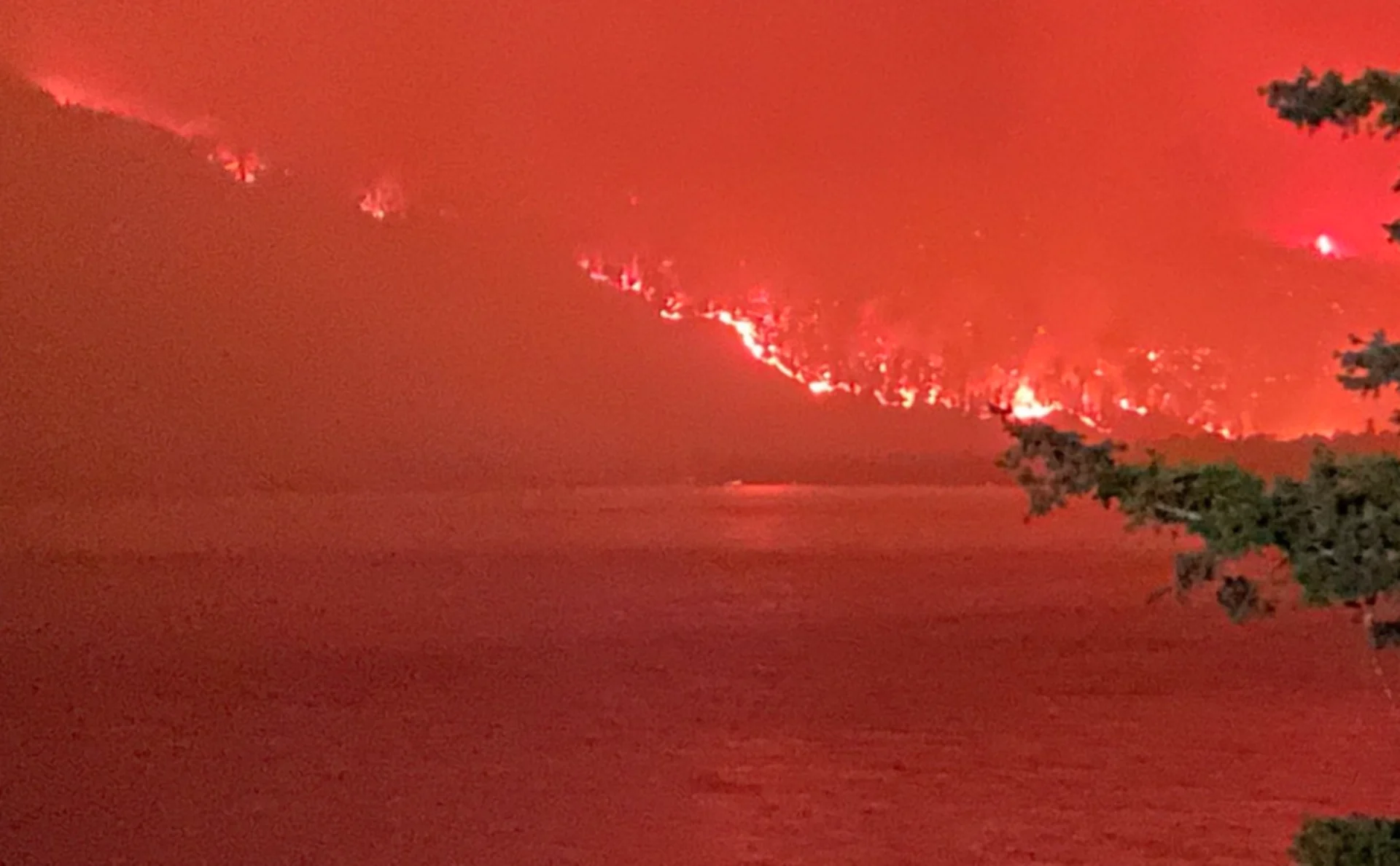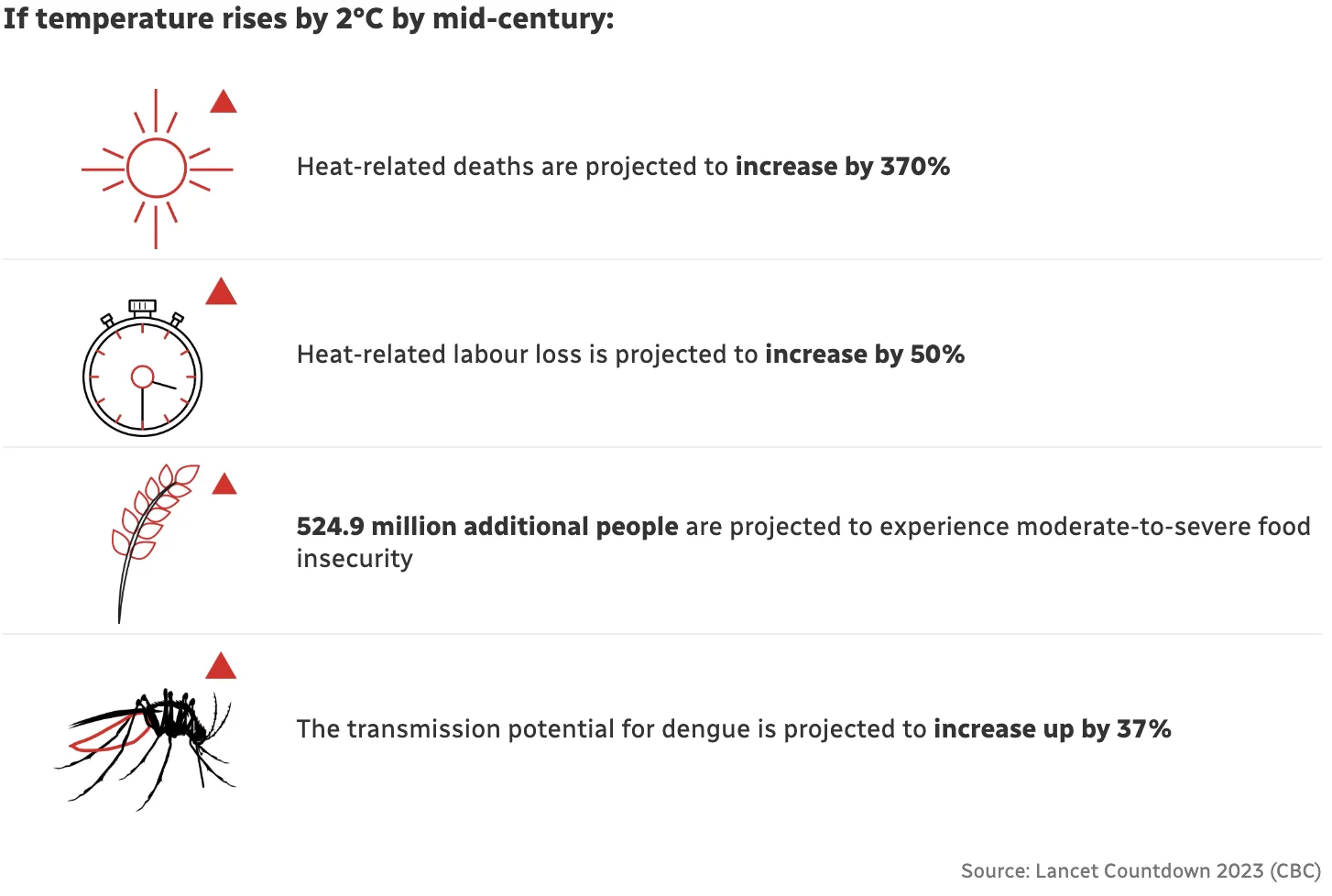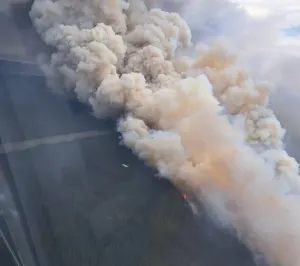
Scientists warn of 'dangerous future' if global emissions aren't cut
Climate change is increasingly impacting the health and survival of people worldwide, and projections show risks will quickly rise with further inaction, scientists warn in a new report.
The report, published Tuesday evening in the prestigious medical journal The Lancet, projected heat-related deaths and food insecurity will skyrocket by mid-century — particularly in the developing world.
"We're already seeing climate change claiming lives and livelihoods in every part of the world. The impacts are happening here and now," Marina Romanello, executive director of the Lancet Countdown at University College London, said in a briefing prior to the report's release.
She added, "These impacts that we are seeing today could be just an early symptom of a very dangerous future unless we tackle climate change urgently."
The Lancet Countdown report, produced annually, is led by University College London in collaboration with more than 100 experts from 52 research institutions.
Poorer countries harder hit
For the first time, this year's report used scientific data to quantify what could lie ahead in a heating world.
New projections outline the rapidly growing risks to population health if the target of limiting warming to 1.5 degrees Celsius above pre-industrial levels is missed, with every health hazard monitored by the researchers predicted to worsen if temperatures rise by two degrees by the end of the century.
RELATED: Heat-related deaths could more than quadruple by mid-century
Under this scenario, yearly heat-related deaths are projected to increase 370 per cent by mid-century, with heat exposure expected to increase the hours of potential labour lost globally by 50 per cent.
More frequent heat waves could lead to around 525 million more people experiencing food insecurity by 2041-2060, exacerbating the global risk of malnutrition.
WATCH: Somalia flooding displaces over 100,000, UN agency says
"People living in poorer countries, who are often least responsible for greenhouse gas emissions, are bearing the brunt of the health impacts," said Georgiana Gordon-Strachan, an epidemiology professor at the University of the West Indies and director of the Lancet Countdown's regional centre for small island developing states.
Funding to help developing countries adapt to climate change and cope with extreme weather events like floods, heat waves and storms, are expected to figure prominently at the upcoming United Nations climate talks, known as COP28, which takes place in Dubai, U.A.E., from Nov. 30 to Dec. 12.

SEE ALSO: This year set to be warmest in 125,000 years, scientists say
Climate-driven drought in Horn of Africa
Already, more frequent heat waves and droughts were responsible for 127 million more people experiencing moderate to severe food insecurity in 122 countries in 2021, compared with 1981-2010.
(The report did not include data from 2023, during which the world experienced the hottest global temperatures on record.)
One of the most severe cases of drought has been unfolding in the Horn of Africa, where there have been extended dry periods punctuated by periods of short intense rainfall since 2020.
RELATED: Scientists warn Earth warming faster than expected — due to ship pollution drop
Climate scientists calculated earlier this year that droughts like the one in the region have become roughly 100 times more likely because of human-induced climate change, driven primarily by the burning of fossil fuels.
More recently, floods — by some estimates the worst in decades — have driven close to half a million people in Somalia from their homes.
The United Nations World Food Program warned Tuesday the floods, in the wake of the drought, will push the country to the brink of famine.
Abigael Lukhwaro, an advocacy manager for Doctors Without Borders in Somalia, said the situation in the country has become increasingly dire.
"You are coming from a very dry spell — then the next thing you are in this situation where there is a lot of flooding, flash floods and a lot of rain," Lukhwaro said in an interview.
"There is no stability. There is no time to recover. There is no time to improve the situation and the livelihoods of the populations that we serve."
Lukhwaro said countries like Somalia will need help to be better prepared, and compensated, for what she described as "climate shocks" in the years to come.
WATCH: Dengue fever is on the rise in North America, how weather impacts the spread
This article, written by Benjamin Shingler, was originally published for CBC News on Nov 15, 2023. Contains files from Carly Thomas.
Header image credit: Nashwito Creek area wildfire (Jaclyn Whittal/The Weather Network)










